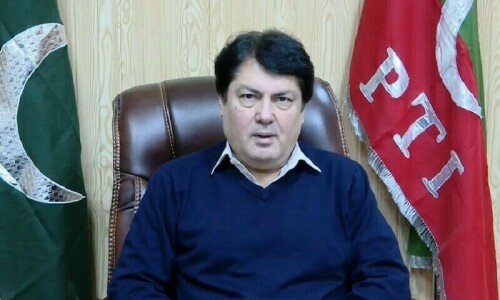Your first novel, The End of Innocence, was sensitive and poised. Why didn’t you continue writing in a similar vein? Do you plan to?
The End of Innocence had a dreamy quality about it because it was set in the past, in an idyllic village, and was a delicate, coming of age story about two girls on the cusp of adulthood.
This time I wanted to write a novel about contemporary Pakistan, set in Lahore, and address myself to the question of: How do you live in the present and plan for the future in a society that is falling apart around you? It had to have brash, opportunistic characters, shattering events that occur every week in the country, and also, small but daily betrayals that happen in people’s homes. I tried to employ the third person narrative to tell this story. The narration was calm, measured and, I felt, objective.
But as I progressed through the book, I realised the writing was so stilted and the characters on such a tight leash that three chapters in, the story was already dead in the water. If I wanted to write about this world and yet offer a glimmer of hope in the end, I had to recount it in a livelier tone of voice, and people it with more independent characters. So I guess what I’m trying to say is that every story dictates its own style. Since I haven’t started on the next one, I can’t yet say what it will be or how it will be told. At a time when Pakistani writers are under the limelight, mainly for more ‘serious’ works, why did you choose to write Tender Hooks, which may be considered a tad superficial in comparison?
Tender Hooks is only superficial if you read it superficially. If you were to look beneath the surface, you find not fluffy chick-lit but serious social satire. The search for a suitable girl for Jonkers is underscored by the account of an unravelling society and a collapsing state.
Do you think Tender Hooks is a novel for women?
I know that The Diary of a Social Butterfly, which appears on the back page of The Friday Times, is read by as many men as women. From the feedback I get from my male readers, they seem to enjoy it. Since Tender Hooks is written in the same vein and about the same characters as the Diary, it should have the same readership.
The central male characters in Tender Hooks, such as Jonkers and Janoo, seem to be more rational, accepting and hence, more likable, than the central female characters. The women who possess these positive qualities, such as Sana and her mother, have smaller roles in comparison. Why is this so?
You missed the maid, Jameela, and the businesswoman, Zeenat who are both are sharp, go getting, successful women, while Tony, Jammy, Uncle Cock-up and Shaukat, are all jerks. I don’t know about you, but do I think the Butterfly is a lot more fun than her very rational, accepting, but tiny bit ‘bore’ husband.
Would you consider Tender Hooks a coming of age novel for Butterfly? We witness her courage and growing sensitivity in this novel. Is Butterfly finally growing up? What causes her to do so?
I guess three things happen back to back which make her reassess her life: her mugging, Jonkers’ evolution into his own man and Mulloo’s crisis. They make her question her own priorities and prejudices.
To give a technical answer to your question, this is a novel. You can’t write a novel without your protagonist undergoing some change in the course of the story.
Do you know anyone as ‘bizarre’ as Butterfly? Who would you say her character is based on primarily?
She’s not bizarre, merely shallow, ignorant and misguided. But I’d say that, wouldn’t I, because she’s based partly on myself and partly on several other characters I’ve met, who shall remain nameless.
What is your favourite Butterfly phrase? “What cheeks.”
Is a sequel to Tender Hooks in the works? Not right now.
In an interview following the publication of The End of Innocence, you said that your next novel would be based in London. Is one in the pipeline?
Yes, but so is a non-fiction book about Pakistan. Let’s see which one gets done first. Which authors have influenced your writing?
Salman Rushdie for the chutney-fication of the English language; Evelyn Waugh for satire and dialogue; Nancy Mitford for humour and fun; and V.S. Naipaul (his early fiction) for truth telling.
And finally, what would Butterfly’s response be to the following:
Raymond Davis: “Vaisay between you, me and the four walls, why do Americans hate us so much? In fact, why is the whole world against us? Must be being jay — oho baba, jealous — because we’re doing, mashallah, mashallah so well, na.”
The revolution in Egypt: “Lucky Husna Mubarik, gets to retire in Sharm al Sheikh, all those nice, nice hotels, and beaches and shopping centres vaghera.” William and Kate’s upcoming wedding: “Posh and Becks are going and I’m not! Life kitni unfair hai vaisay.”
— Mamun Adil














































Dear visitor, the comments section is undergoing an overhaul and will return soon.